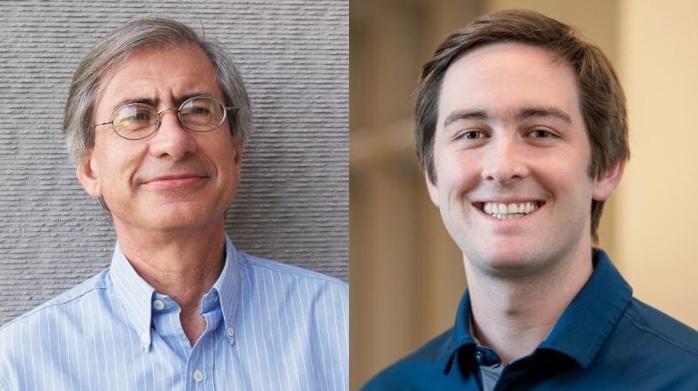 About the Episode:
About the Episode:
Political scientist and peacebuilder Jorge Vargas Cullell, a former Kellogg Dissertation Year Fellow, discusses his long-standing connection to Notre Dame and perspective on the field of democratic theory today. Jorge describes his experience directing citizen audits in Costa Rica since the 1990s with the think tank Estado de la Nación, and the many lines of research this organization has produced. Jorge received the 2024 Distinguished Alumni Award by the Kroc Institute for International Peace Studies. He is interviewed by Kellogg Doctoral Affiliate Patrick McQuestion.
Show Notes:
Welcome to Global Stage, a podcast highlighting academic and policy-oriented international research on democracy and human development. Global Stage is brought to you by the Kellogg Institute for International Studies, part of the Keough School of Global Affairs at the University of Notre Dame. Your host today is Kellogg Doctoral Affiliate Patrick McQuestion, a PhD student in peace studies and political science.
Patrick is joined by this year’s Kroc Institute Distinguished Alumnus, Jorge Vargas Cullell. He earned an MA in peace studies and a PhD in political science from the University of Notre Dame. At the Kellogg Institute, he was a Dissertation Year Fellow and worked on the Varieties of Democracy Project. In addition to his academic career, Jorge is the Director of the Costa Rican think tank Estado de la Nación (State of the Nation). His Alumni Awards lecture is titled, “The Uneasy Relationship of Peace, Democracy, and Human Development: Reflections on the Hopes and Disappointments of Central America’s Peace Agreements.”
To begin, Jorge shares what brought him to the University of Notre Dame. He is Costa Rican and both he and his wife are Fulbright scholars. They had until 2pm one day to make a decision and that led him to an almost blind decision to go to Notre Dame. He says it is the most irresponsible, but consequential decision of his life. Before starting the MA program, Jorge was already involved in the Costa Rican democracy and was interested in peace from a broad, international, and pragmatic approach. He learned how to deal with conflict and connected conflict with fundamental issues. Jorge laid out a research agenda for democracy by asking people what their view of democracy was, and what they include and don’t include when they think of the term. Democracy is much more than a system of government; it is linked to certain deliveries like the rule of law and how to tame political power.
Next, he discusses criminal governance by saying crime is not just cancer on the streets, but crime is also a form of political power or economic acts that penetrate the state and politics. Crime has an influence on policies, and criminals use it to their own advantage, sometimes to buy off or threaten judges. Jorge also talks about applying research to influence public and private decisions by providing unquestionable data. People trust data and feel that data is true.
In closing, Jorge discusses the Costa Rican government and how it is difficult to identify the people who can really make a difference, and someone who will understand the underlying realities of politics and culture. He recommends understanding the part of the state you are talking to, how power is balanced, and what’s required for building lasting peace.
Links:
- Learn more about Jorge Vargas Cullell.
- Learn more about the Kellogg Institute for International Studies.
- Learn more about the Kroc Institute for International Peace Studies.
- Watch Cullell’s 2024 Kroc Institute Distinguished Alumni Award Lecture.
Listen
Listen below, ask your smart device to “play Global Stage Podcast,” or find us on:
Apple | Spotify | Stitcher | iHeartRadio | TuneIn





